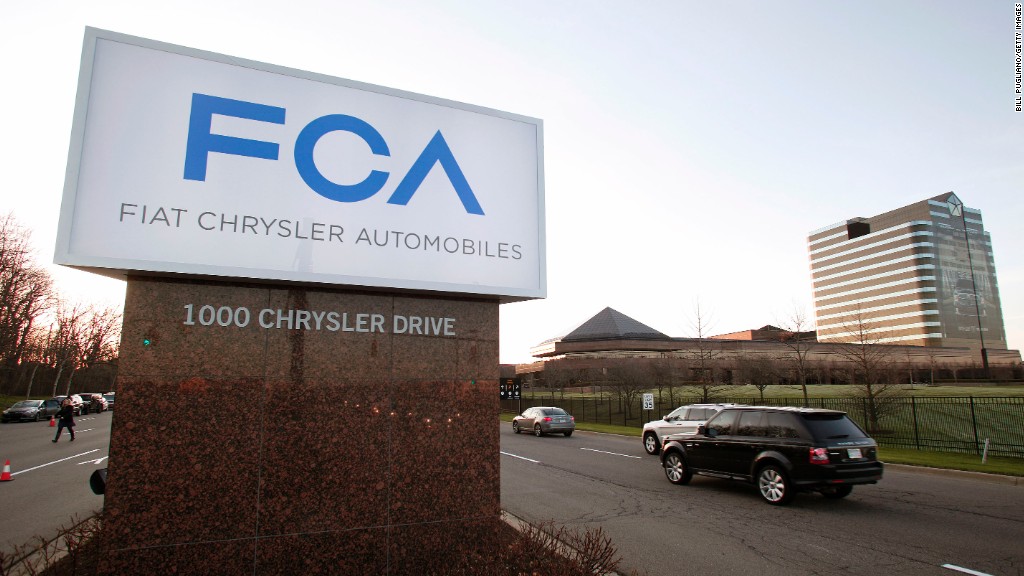
Union members at Fiat Chrysler may be about to reject the tentative deal the United Auto Workers leadership reached with the automaker earlier this month.
The four-year deal has been going through a factory-by-factory ratification process. While the UAW has not released the early vote results, many of the local unions that have voted disclosed via social media that their members rejected the contract.
Still, as much as a third of UAW's membership has yet to vote, so it's possible the deal could narrowly pass. Final results are expected either late Wednesday or Thursday.
If membership does reject the deal, the union could try a new round of negotiations with Fiat Chrysler (FCAM), or it could put talks on hold while it seeks deals with General Motors (GM) or Ford Motor (F). Eventually, there could be a strike.
At issue is the industry's two-tier wage and benefit structure, which divides the workforce into two groups: Veterans who were hired before September 2007 and "new" workers hired after that date.
Veteran UAW members make at least $28 an hour, and have retiree health care in addition to a pension. Tier two workers are paid between $17 to $24 an hour, depending on seniority, and don't get a pension or health care benefits when they retire. Under the new contract that gap would be partly closed, but not eliminated. Tier two workers' pay would range from $22 to $25.35.
The deal would give veteran workers who haven't had a raise in a decade two hikes of 3% -- one at the start of the contract and one at the start of the third year. It also includes lump-sum bonuses and profit sharing payments for those veteran workers.
Related: Fiat Chrysler failed to notify safety regulator about problems with its cars
But much of the opposition to the deal is apparently coming from lower-paid second tier workers, who make up about 45% of Fiat Chrysler's UAW members.
Those workers were hoping that the new contract would put a cap on the percentage of workers who can be paid at the lower wage. The UAW contracts with GM and Ford both limit the second tier to 25% of their workforce.
That cap gives lower wage workers the chance to move into the top tier. For instance, earlier this year Ford hired so many new workers that it went over that cap, so it had to move about 800 workers from the second tier up to the first tier.
Related: Related: Fiat 500L - Good choice for frugal Pope
While the proposed deal closes much of the gap between the two tiers, it doesn't eliminate the second tier or propose any way to limit its size.
The three contracts that the UAW has with GM, Ford and Fiat Chrysler cover about 140,000 hourly factory workers at their U.S. plants. That's up 27,500 workers, or nearly 25% compared to when the last deal was reached in 2011.
The manufacturers have been hiring in response to a huge jump in U.S. car sales. The traditional Big Three sold more than 5 million autos in the first eight months of this year, up 30% from what they sold the same period of 2011.
A Fiat Chrysler spokeswoman declined to comment on the voting .

